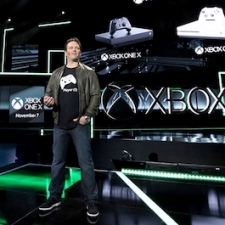Microsoft’s record breaking acquisition of Activision Blizzard was closed earlier this month, signaling the end of one of the biggest stories in gaming history - at least for now.
While Microsoft has repeatedly claimed that the core reasoning behind the deal is mobile - most notably Activision Blizzard subsidiary King - legislators worldwide have honed in on other areas of the business - namely exclusivity for console games and, later, cloud gaming.
One solution proposed by legislators was for Microsoft to sell the rights to Call of Duty, a repeated source of concern, or else to purchase King on its own - a solution they nixed, claiming it made no sense to purchase only parts of Activision Blizzard.
However, when the focus of legislators shifted to a prospective monopoly on the cloud gaming market, they later agreed to sell Activision Blizzard’s cloud gaming rights to Ubisoft, suggesting that they were willing to consider selling off some parts of the company to close the deal, all of which, given their reluctance to cut adrift Call of Duty in such a manner, does raise persistent questions concerning the future exclusivity on Xbox for games such as the newly acquired Call of Duty.
War games
Now, Xbox CEO Phil Spencer has clarified that with the purchase, there will be no further exclusivity deals in the hit franchise.
"We have no goal of somehow trying to use Call of Duty to get you to buy an Xbox console," said Spencer, on the official Xbox Podcast.
Previously, Call of Duty has offered exclusive items and experiences, ranging from multiplayer modes to cosmetics, depending on platform. Going forward, Microsoft will be eliminating such offers to maintain an equitable experience regardless of where players choose to play, appeasing console players concerned about future accessibility, and - so far at least - making good on all it's pre-Aquiblizz Call of Duty promises
A Call of Duty to players
While exclusivity is one way to boost console sales, Microsoft’s strategy with Activision Blizzard’s titles is seemingly to maximise revenue by making sure the title is available on as many platforms as possible. This also allows the company to circumvent any criticism regarding its goals with the acquisition, while maintaining the focus on what matters: accelerating Microsoft’s mobile gaming goals.
Ironically, legislator’s focus on Call of Duty has come at the expense of attention paid to concerns from mobile competitors. Google openly spoke out against the acquisition in December owing to its concerns that Microsoft would make games developed by Activision Blizzard and King, including the worldwide smash hit Candy Crush, exclusive to its own in development app store.
Notably, while Microsoft has signed deals ensuring cross-platform availability for Call of Duty for at least the next ten years, it’s managed to avoid doing the same when it comes to mobile. As such, it may emerge that the original concerns of legislators were valid, but that they were focusing on the wrong platform all along.
We listed Activision Blizzard as one of the top 50 mobile game makers of 2023.






















